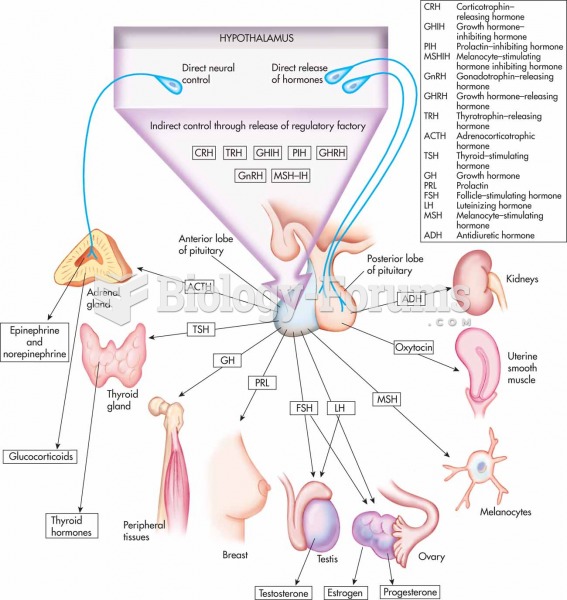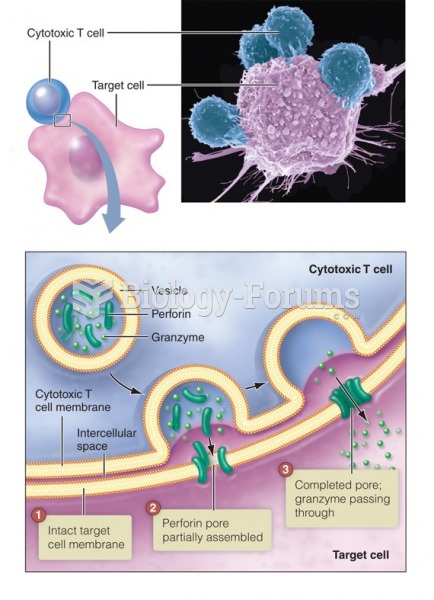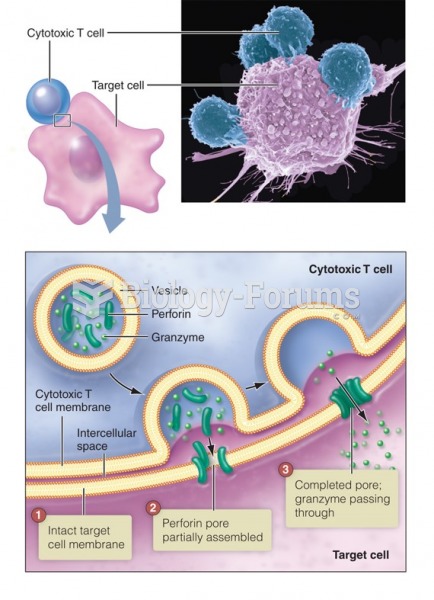|
|
|
About 80% of major fungal systemic infections are due to Candida albicans. Another form, Candida peritonitis, occurs most often in postoperative patients. A rare disease, Candida meningitis, may follow leukemia, kidney transplant, other immunosuppressed factors, or when suffering from Candida septicemia.
The ratio of hydrogen atoms to oxygen in water (H2O) is 2:1.
Acetaminophen (Tylenol) in overdose can seriously damage the liver. It should never be taken by people who use alcohol heavily; it can result in severe liver damage and even a condition requiring a liver transplant.
The familiar sounds of your heart are made by the heart's valves as they open and close.
Most childhood vaccines are 90–99% effective in preventing disease. Side effects are rarely serious.







